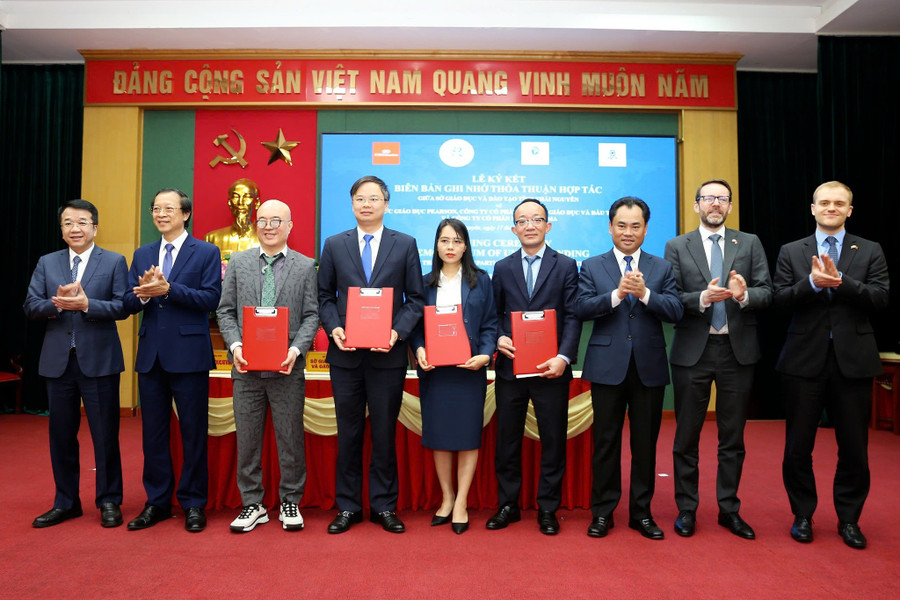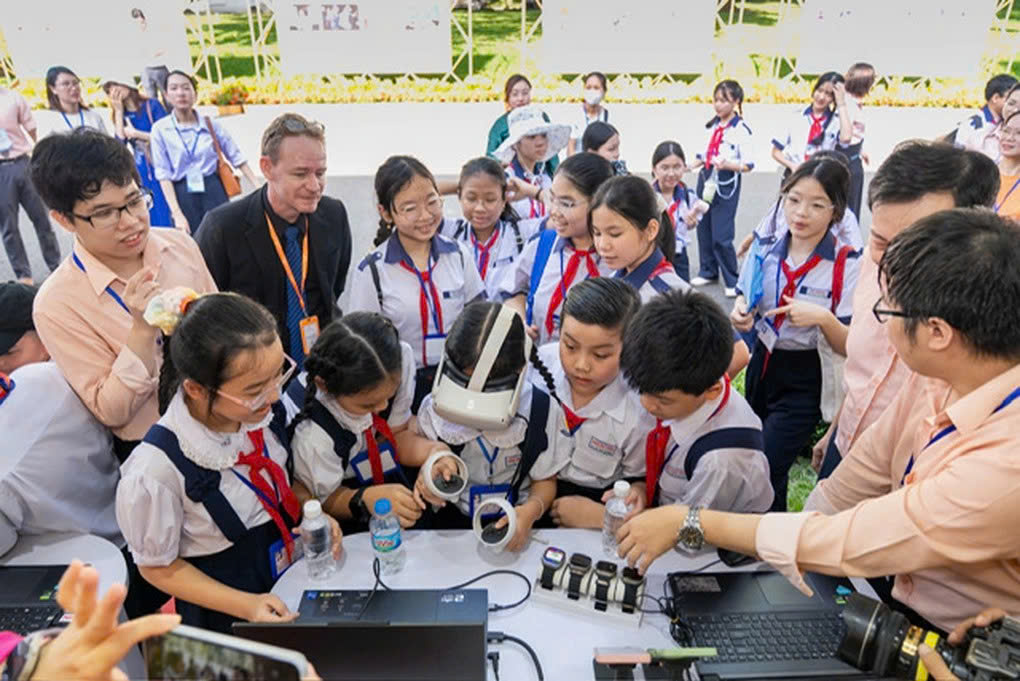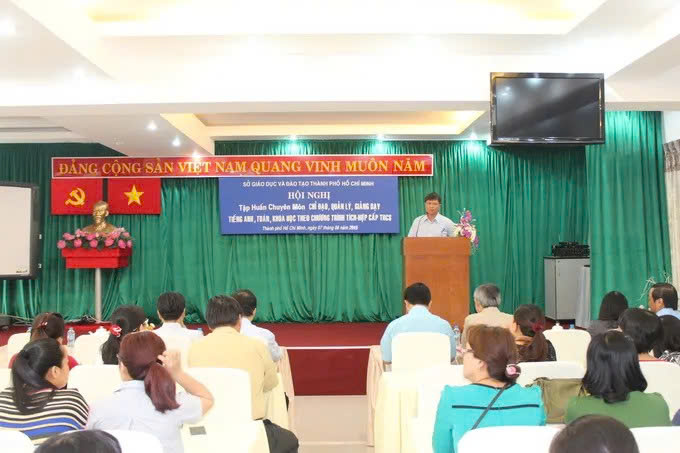For the 2025-2026 academic year, Ho Chi Minh City will introduce a bilingual STEM program, integrating artificial intelligence (AI) and virtual/augmented reality (VR/AR) more extensively into English teaching and learning.
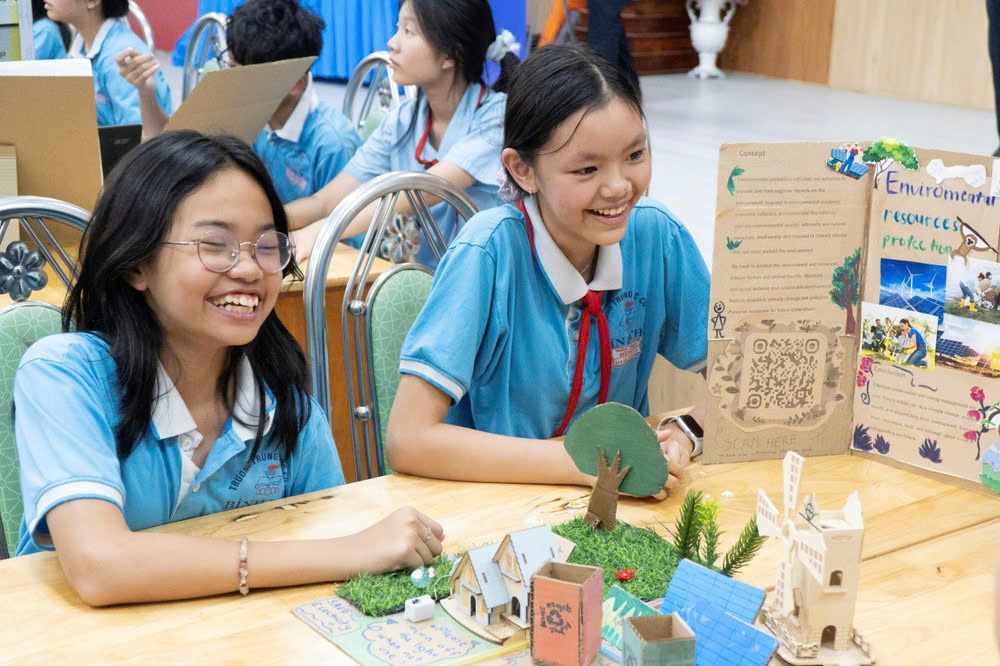
Students of Binh Tho Secondary School (Thu Duc District, HCMC) take part in a science fair with teachers of the integrated English program
On August 20, at the conference outlining directions and tasks for the new school year, Lam Hong Lam Thuy, Head of the General Education Division under the city’s Department of Education and Training (DoET), announced that Ho Chi Minh City would accelerate the application of information technology and expand the use of AI and VR/AR in online English learning.
This initiative aims to build a personalized learning environment and gradually establish English as a second language in schools. The effort is part of the implementation of Conclusion No. 91-KL/TW (August 12, 2024) of the Politburo and Decision No. 1600/QĐ-TTg (December 19, 2024) of the Prime Minister.
Schools will establish comprehensive English learning environments, encouraging students to use the language as an effective tool for communication and learning. Ho Chi Minh City also plans to improve teacher training, standardize English proficiency for teachers with support from domestic and international experts, and offer incentives to attract qualified and native English-speaking teachers, especially in disadvantaged areas.
On infrastructure, the city will invest in functional classrooms, audiovisual equipment, computers, and Internet connectivity, prioritizing newly merged districts and underdeveloped areas. The DoET also encourages educational socialization, mobilizing resources from businesses, organizations, and individuals to invest in facilities and teaching materials.
A digital learning resource bank and interactive learning applications will also be developed, enabling students to self-study anytime, anywhere. For teachers of other subjects, a shared bank of resources and model activities will be created to support the flexible integration of English into lesson plans.
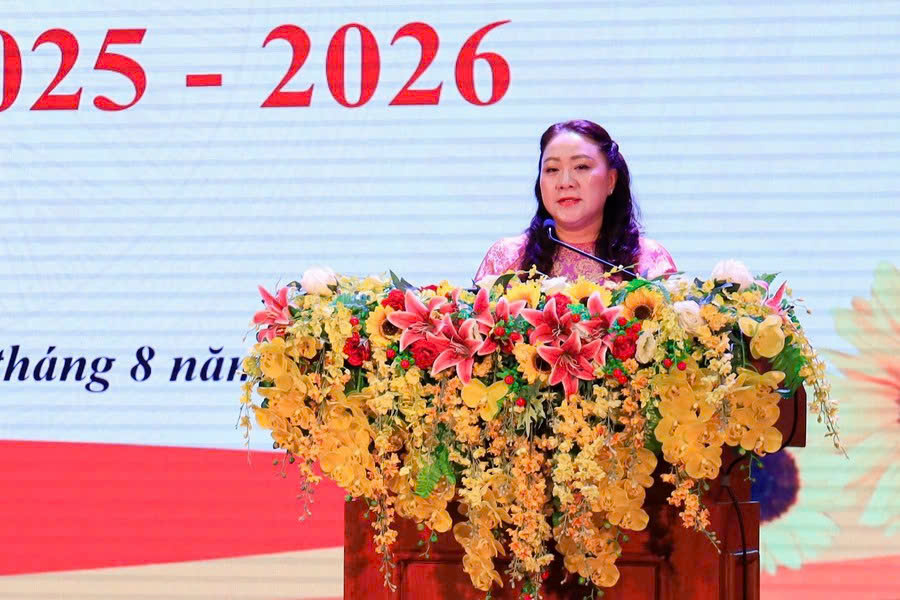
Lam Hong Lam Thuy, Head of the General Education Division, delivered a speech at the conference
Recently, the Ho Chi Minh City DoET approved a bilingual Vietnamese–English STEM curriculum to be implemented at primary, lower secondary, and upper secondary schools from the 2025–2026 school year.
Developed by EMG Education, the program equips students with 21st-century skills while contributing to improvements in the Global Innovation Index (GII), a key indicator reflecting national innovation capacity.
Spanning 36 modules across grades 1–12 (three modules per year), the program introduces scientific approaches to problem-solving, guides students in designing solutions, and trains them to present and explain results convincingly.
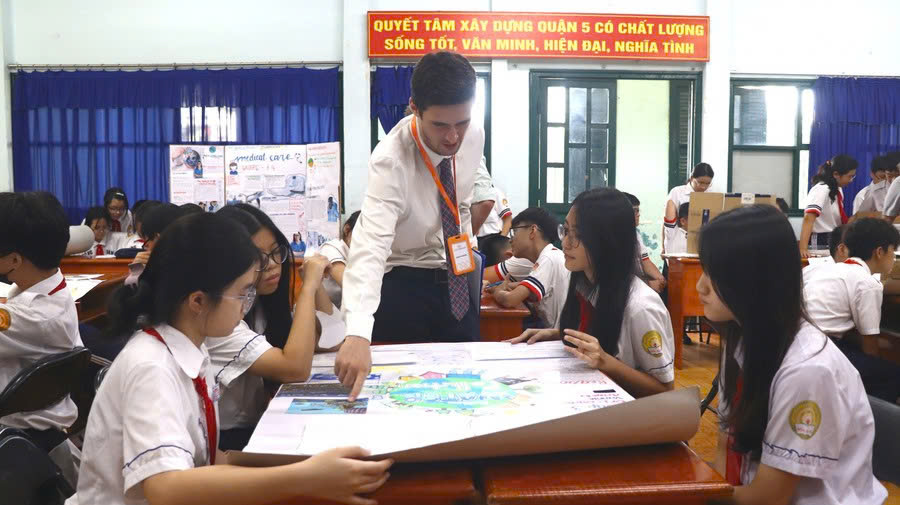
Hong Bang Secondary School students (Cho Lon Ward, HCMC) participate in a science fair alongside teachers of the integrated English program
The program’s materials and digital resources will be delivered on a dedicated platform with detailed e-lesson plans to support teachers. Content emphasizes creativity and innovation in line with the GII criteria. Teachers will receive specialized training from EMG experts on pedagogy and technical skills. Each grade level includes three modules, each lasting 10 weeks.
The bilingual program allows students to learn STEM subjects while developing English skills in mathematics, science, and technology—progressively working toward the national goal of making English a second language in schools under Conclusion No. 91.
According to the DoET, a distinctive feature of the program, titled “STEM – Breakthrough Innovation Advancement”, is its grounding in real-world community issues such as air pollution, clean water, renewable energy, and public health. All learning materials are bilingual, helping students simultaneously develop STEM thinking and language skills.
The program also adopts an innovative assessment approach: within each module, students are continuously evaluated against a systematic STEM competency framework. This ensures a comprehensive assessment of STEM skills, creativity, and essential learner qualities.
The program emphasizes holistic development, training students in scientific and technical thinking, communication, teamwork, and presentation, while fostering patriotism, responsibility, and diligence as core Vietnamese values.
STEM education has been promoted in Ho Chi Minh City for several years. Since the 2024–2025 academic year, schools have implemented STEM through various formats: integrated lessons, scientific research projects, and extracurricular STEM clubs.
These efforts aim to modernize teaching methods, develop students’ problem-solving and practical application skills, and meet the requirements of Vietnam’s 2018 General Education Curriculum.
Source: Giáo dục & Thời đại – Education & Times






